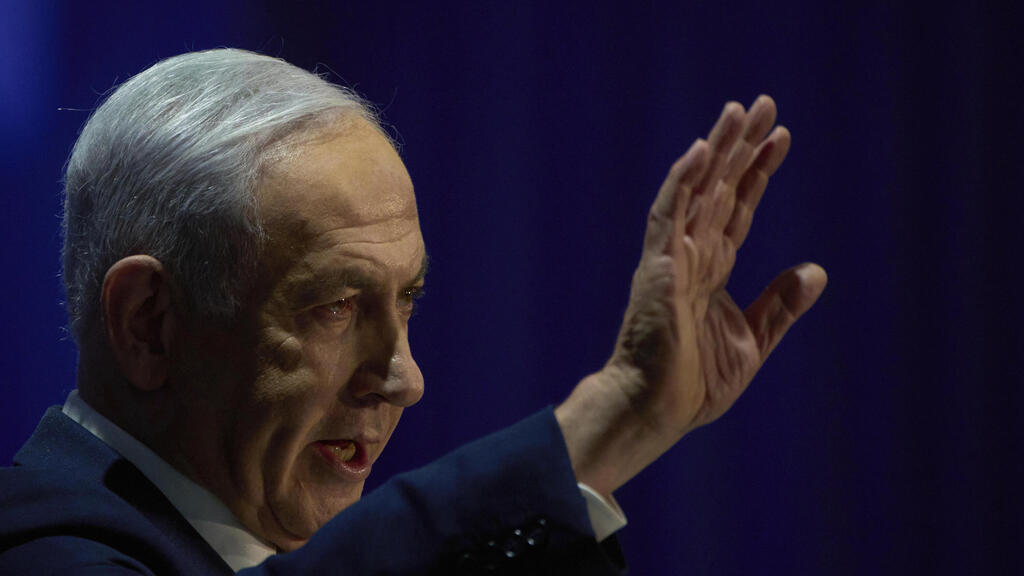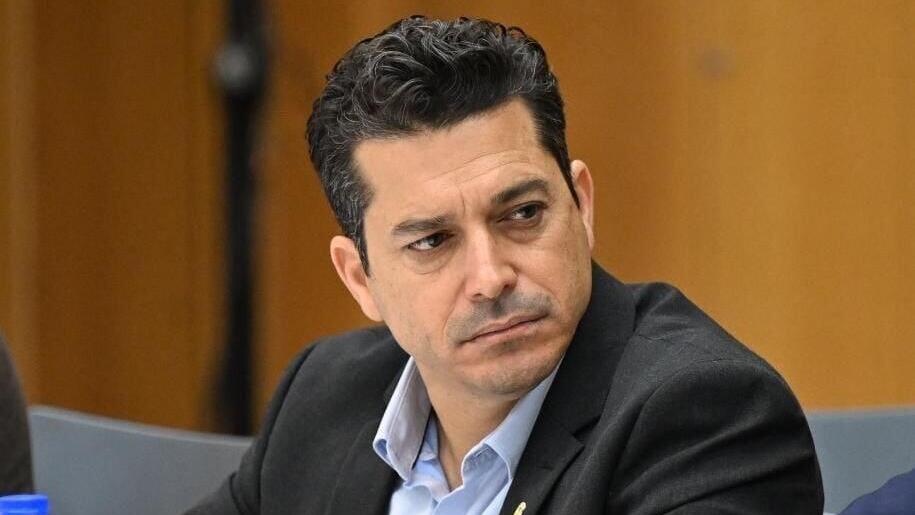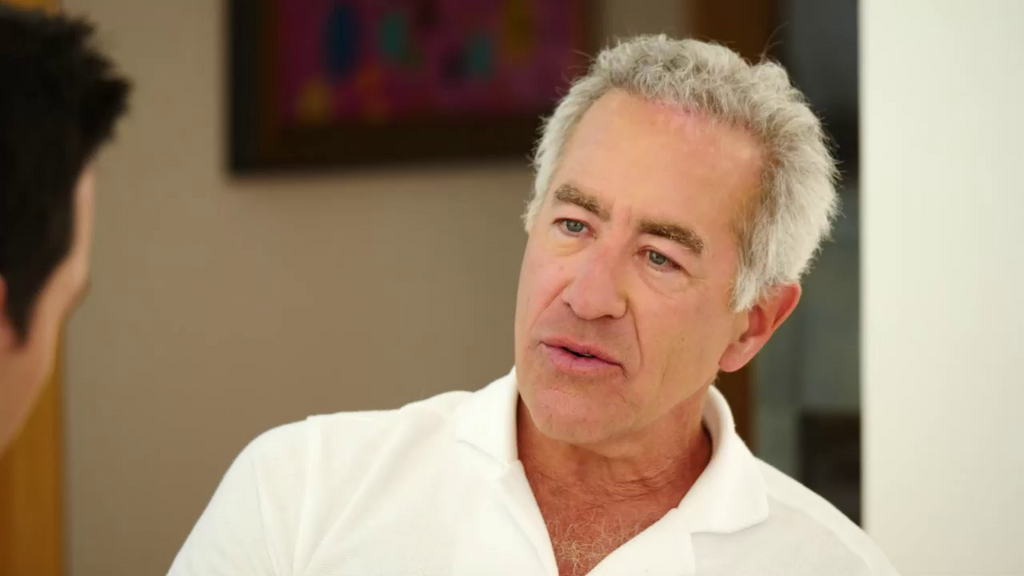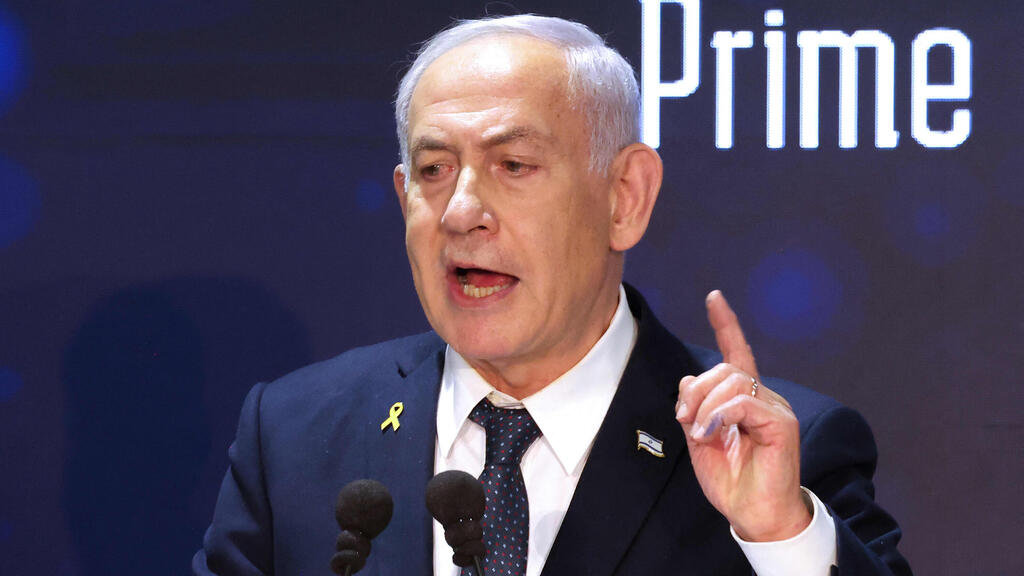Getting your Trinity Audio player ready...
The Diaspora Affairs Ministry held its International Conference on Combating Antisemitism last week in Jerusalem, an annual gathering that brings together government ministers, foreign political figures, activists, and diplomats from countries aligned with Israel. This year’s edition, held under the shadow of the ongoing war between Israel and Hamas, was fraught with controversy.
Tensions began with the announcement of the guest list, which included leaders from right-wing parties in the European Parliament. The inclusion prompted boycotts by prominent Jewish community representatives and heads of major organizations that have traditionally shaped the institutional approach to fighting antisemitism.
Among those who withdrew their participation were the chief rabbi of the United Kingdom, the head of the Anti-Defamation League, and senior officials from the German and French foreign ministries.
One attendee whose presence drew condemnation was Hermann Tertsch, a Spanish member of the European Parliament for the sovereigntist Patriots for Europe group.
“They are very nervous because we are growing and the other parties are losing,” Tertsch said in an exclusive interview.
He said that no one need worry about him or his colleagues in the European Parliament, France’s Jordan Bardella and Sweden’s Charlie Weimers, who also attended the conference. “We are not antisemites; on the contrary, we have been many, many years fighting against antisemitism,” he said. “We are not extreme right. We are not radicals. We are defending our ideas with firmness—that’s the truth.”
Rather than worry about him or his fellow politicians in the European Parliament, the UK’s chief rabbi ought to be concerned about UK Prime Minister Keir Starmer’s alleged support for Islamism and promotion of “a culture which is profoundly antisemitic,” Tertsch said.
The atmosphere at the conference reflected a clearly defined right-wing political leaning, with the audience consisting largely of political allies and affiliates of Israel’s ruling party. Recognizable figures in the global fight against antisemitism were present at the event, including Israeli legal scholar Eugene Kontorovich, American pro-Israel influencer Lizzy Savetsky, and British-Israeli political scientist Gerald Steinberg, who founded NGO Monitor.
The conference’s attendees showcased the broad range of perspectives on the central issue and the shared urgency across converging worlds, from activism to academia, all fighting for a common goal to shake off antisemitism.
As the opening reception unfolded, hundreds of guests and speakers were abruptly interrupted by air raid sirens following the launch of two ballistic missiles from Yemen. Security personnel ordered attendees to lie on the floor and cover their heads as sirens rang out across central and eastern Israel.
The scene set a dramatic tone even before the first speeches began, underscoring the sense of siege that would later be echoed from the podium. In a symbolic convergence of timing and message, the physical threat from afar foreshadowed the rhetoric that would dominate the conference: a call not for cautious diplomacy, but for confrontation and war.
'We don’t need a struggle against antisemitism; we need a full-scale war'
Diaspora Affairs Minister Amichai Chikli opened the conference by defending the presence of his guests. “First and foremost, I want to defend our friends and allies, especially our friends from the European Parliament, who chose to come to Israel during wartime—as we all experienced during the break—to visit Gaza’s border communities and participate in this event,” he said. “I also want to apologize for the lies spread against them by those who slander the state of Israel worldwide.”
The minister escalated his speech into a vociferous denunciation of what he described as internal defamation, taking direct aim at the Israeli newspaper Haaretz. With visible intensity, Chikli accused the paper of systematically harming the country through what he called a campaign of “slander disguised as journalism.” He claimed that the newspaper’s reporting not only distorts Israel’s image but also serves as a gift to enemies of Israel abroad.
We don’t need a diplomatic struggle against antisemitism; we need a full-scale war.
“When Iranian media outlets like Press TV or Hamas channels need anti-Israel content, they don’t have to look far. They simply translate articles from Haaretz,” he said from the podium.
Chikli characterized Haaretz’s reporting as something more serious than irresponsible journalism; it was, he argued, part of a broader effort by a “self-flagellating elite” to erode Israel’s moral foundations from within. His remarks drew loud applause from the audience, many of whom nodded as he denounced what he described as the erosion of press responsibility and a form of national sabotage.
“We don’t need a diplomatic struggle against antisemitism; we need a full-scale war,” Chiki continued. He said that the Ministry of Diaspora Affairs would continue to work with leaders and organizations who see the reality clearly and are ready to roll up their sleeves to do the hard work.
5 View gallery


Foreign Minister Gideos Sa'ar and Diaspora Affairs Minister Amichai Chikli
(Photo: Menahem Kahana / AFP)
Foreign Minister Gideon Sa’ar delivered a forceful address tracing the historical evolution of antisemitism and framing anti-Zionism as the phenomenon’s modern expression.
“In the Middle Ages, Jews were persecuted because of their religion. In the 19th and 20th centuries, they were reviled because of their race. Today, Jews are attacked because of the existence of their nation state, Israel,” Sa’ar said, echoing the words of the late Rabbi Jonathan Sacks. He went on to explain that the Jewish state was founded in response to centuries of persecution.
Sa’ar warned that radical Islamist and progressive forces have “turned to the institutions of international law to try and tie our hands,” denouncing organizations like the International Criminal Court, the International Court of Justice, and the UN Human Rights Council as a “modern-day antisemitic blood libel.”
Concluding with a broader warning, Sa’ar declared: “The radical alliance is not just a threat to the Jewish people. It is a danger to freedom itself. … What starts with the Jews never ends with the Jews.”
The tenor and content of his speech echoed those of Chikli’s. Chikli said that he and Sa’ar “work together, no ego,” in their roles.
The conference’s afternoon program featured a series of panels and keynote speeches exploring the ideological, religious, and geopolitical dimensions of modern antisemitism.
The first panel, “Don’t Confuse Me with the Facts: How Progressivism Fell Captive to Antisemitism,” examined ideological shifts on the progressive left. Later, “The Judeo-Christian Bond: Aligning Values Across the Atlantic” brought together political activists and faith leaders, including Mike Evans, founder of Jerusalem’s Friends of Zion Museum.
In the evening, MEP Jordan Bardella delivered a keynote, followed by an interview with former US Ambassador to Israel David Friedman. The final panel, “The Hand That Stirs the Hate: How Radical Islam Fuels Antisemitism in the West?” featured various European journalists and members of the European Parliament.
The program concluded with keynote speeches by Israeli-Canadian businessman Sylvan Adams and Prime Minister Benjamin Netanyahu, reinforcing a call for ideological clarity and transatlantic coordination in the fight against antisemitism.
Karys Rhea, a producer for the conservative media company The Epoch Times, participated in the conference’s opening panel. In an exclusive interview, Rhea emphasized that she attended the conference in a strictly independent capacity and that her views did not reflect her media affiliation.
Rhea praised what she described as the Trump administration’s “whole-of-society approach” to combating antisemitism, citing the formation of an interagency task force and executive orders targeting foreign nationals who support terrorism on US campuses. Most of President Donald Trump’s appointees “feel very strongly” about supporting Israel and combating antisemitism, she said.
Still, Rhea offered a pointed critique: “For all the good Trump is doing and for all of the positive changes that are coming in terms of fighting antisemitism and standing up for Israel, Trump will never get the peace in the Middle East that he wants, nor will he eliminate the antisemitism from college campuses, unless he deals with Qatar,” she said.
She also defended the participation of European nationalist parties in the event, arguing that labeling them as “far right” is inaccurate. “They’re just conservative parties that have somewhat of a populist bent to them … much like the MAGA party in America. They look at Israel as a model for how they want their own countries to look,” she said, arguing that Israel ought to embrace such parties.
Former Ambassador Friedman said that his highest priority was helping Jews understand the importance of maintaining a Jewish identity and fighting for the Jewish people. “Tomorrow I could just change my name from Friedman to just some gentile name, and people wouldn’t necessarily know that I was Jewish,” he said. “I would never do it; I would cut off my arm before I would do that. How do we get that into people that people are willing to fight for being Jews?”
The prime minister drew a direct parallel between modern Israeli soldiers and the Maccabees, affirming Israel’s refusal to bow to terror or antisemitism. “We fight back. We do so on the battlefields of the Middle East, and—with your help—we will fight antisemitism on the intellectual and political battlefields of the world,” he said.
Our tormentors are now undergoing a change of perception. They realize a simple truth: We are no longer powerless. We are no longer weak.
Citing founding Zionist thinker Theodor Herzl’s vision of Jewish sovereignty and Jewish contribution to humanity, he asserted that the Jewish state had fulfilled its promise, becoming “a fountain of innovation, of progress, which we share with all of humanity.”
Netanyahu recalled a recent visit to Washington during which he met with Jewish students facing harassment on college campuses and encouraged them to resist and take action. “Do not apologize. Do not bow your head. Stand strong. Stand together,” he concluded, reinforcing a call for Jewish resilience both in Israel and abroad.
As the final applause faded in Jerusalem, one thing was clear: for Israel’s current leadership, the fight against antisemitism is not just a matter of principle—it is a joint offensive, carried out across ministries, borders, and battlefields, both diplomatic and ideological. For now, that strategy seems to be championed primarily by one side of the political map, with the other side conspicuously absent.
Friedman said that governments are able to fight antisemitism more effectively than individuals or nonprofit organizations. “You have these NGOs expending billions of dollars, Trump comes in, he’s here less than 100 days, already he’s brought the universities to heel, he’s deporting antisemites,” he said. “The government can do a lot if it’s the right government.”
Prime Minister Netanyahu’s final keynote address was received with enthusiastic applause by an audience largely aligned with his political camp. Framing the current struggle against antisemitism as part of a broader historical and national resurgence, Netanyahu declared, “Our tormentors are now undergoing a change of perception. They realize a simple truth: We are no longer powerless. We are no longer weak.”
Get the Ynetnews app on your smartphone: Google Play: https://bit.ly/4eJ37pE | Apple App Store: https://bit.ly/3ZL7iNv





